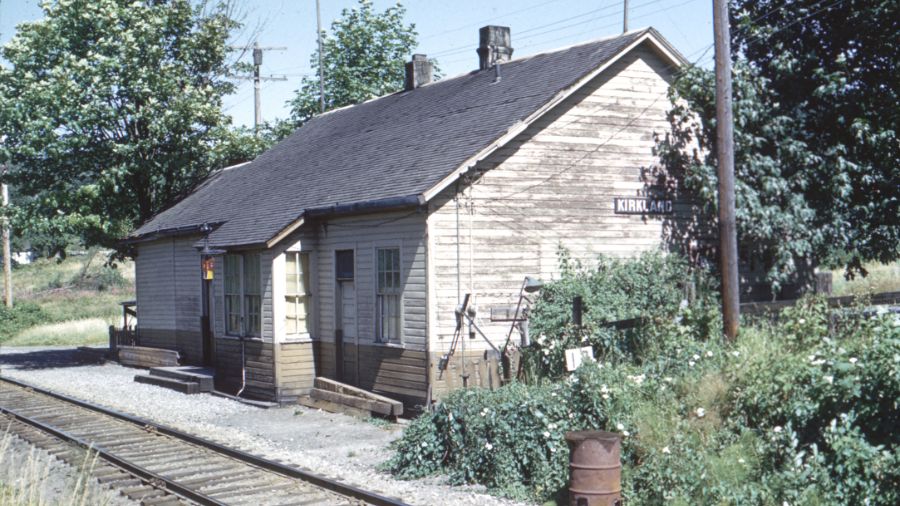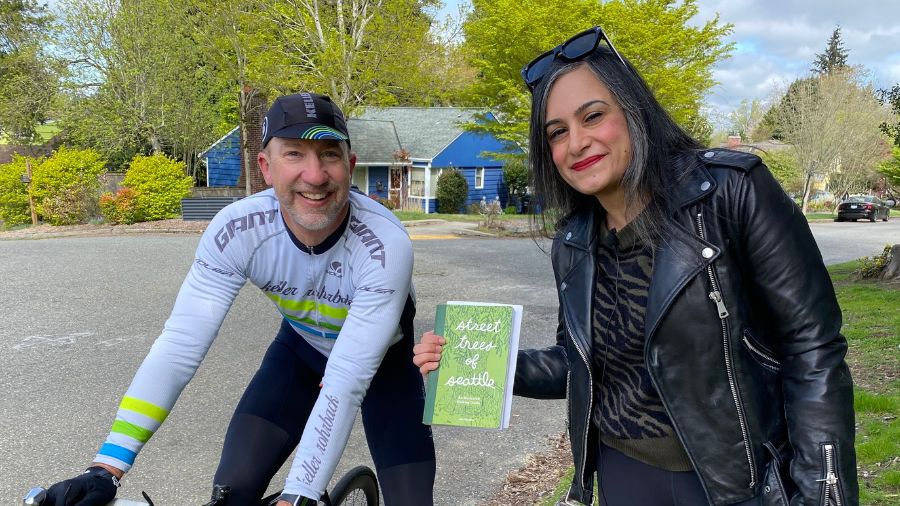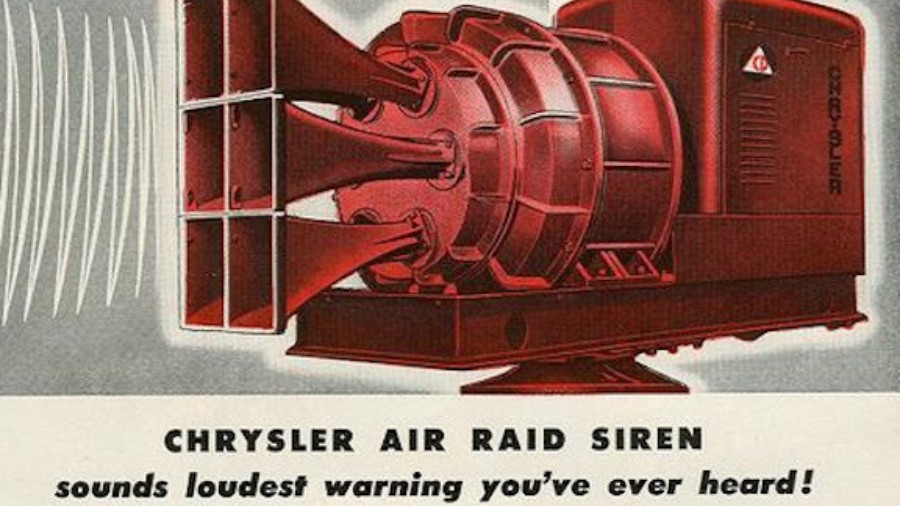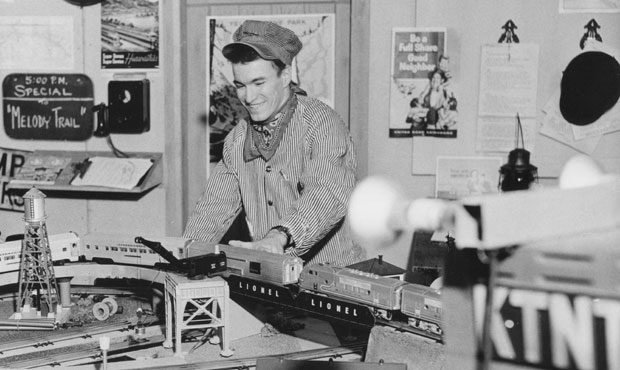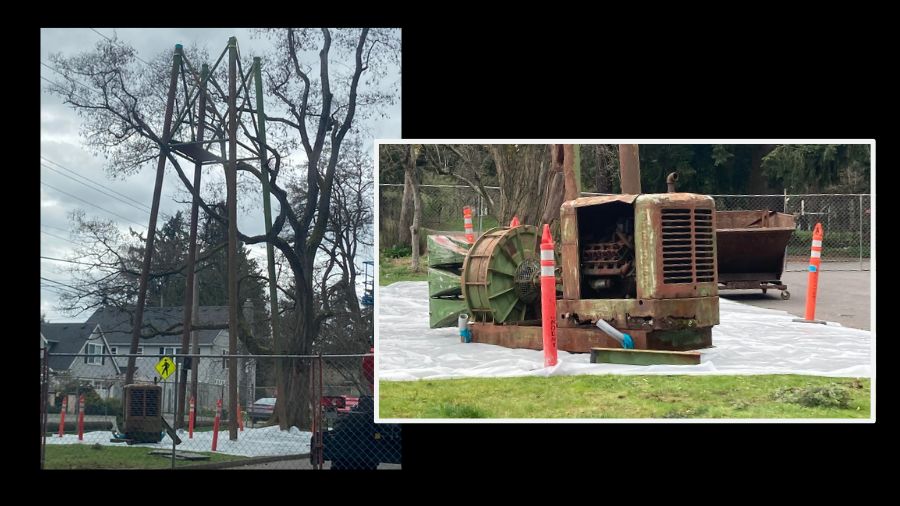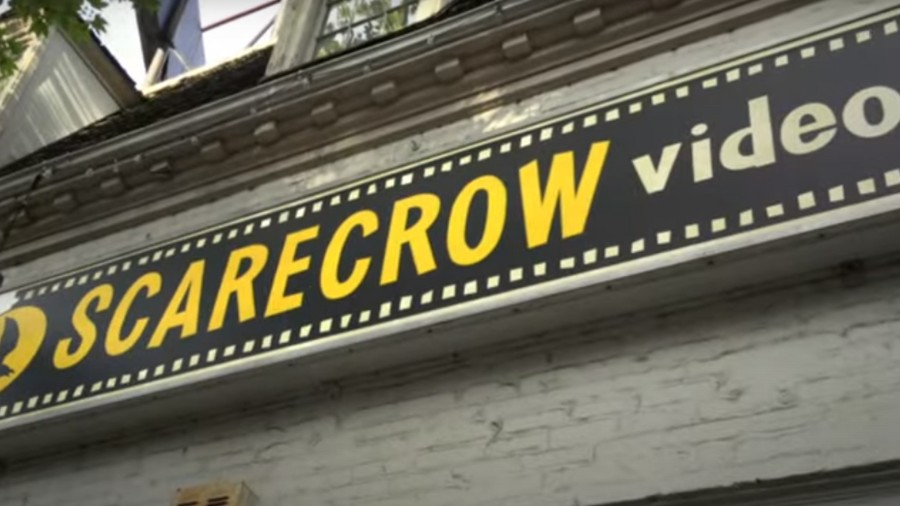When ‘War of the Worlds’ brought a small Washington town to a panic
Oct 30, 2023, 10:00 AM | Updated: 12:05 pm

American film director and actor Orson Welles, left, photographed with English author H.G. Wells in San Antonio, Texas, on Nov. 30, 1940. (AP Photo)
(AP Photo)
The October 30, 1938 broadcast of “The War of the Worlds” by Orson Welles and his Mercury Theatre On The Air caused panic around the country, as more than a million people believed they were hearing real news bulletins describing a Martian invasion, rather than just a cleverly-disguised radio play.
While the infamy of that broadcast lives on worldwide, many people around this area don’t remember that one of the most infamous episodes of public panic happened in the town of Concrete, 90 minutes north of Seattle on SR 20 in Skagit County.
Concrete is a fascinating city for so many reasons. It’s been a hard-luck place as long as I can remember — long before the eponymous concrete plant closed, and years before it was immortalized by the Tobias Wolf book “This Boy’s Life” and the subsequent film, much of which was shot in Concrete, creating a short-lived renaissance for the little town in the early 1990s.
My family used to camp every year at nearby Baker Lake in the Mt. Baker-Snoqualmie National Forest, and no camping trip was complete without a visit to Concrete, to tour its depressed streets and stop at Albert’s Serve-U to buy comic books, candy bars, and other wilderness essentials. Our devotion to Concrete was so great, I remember one August in the early 1970s when my parents even bought me a new pair Keds for first grade from the old Concrete Department Store.
Growing older meant no longer camping so much with my folks, of course, but I still couldn’t stay away from my favorite town. As a college student in the late 1980s and early 1990s, I took friends to Concrete and we poked around the many abandoned buildings, including the headquarters of the concrete plant. We pored over old employee records from the 1930s, and I plucked a calendar from the wall (it read “Morse Hardware Bellingham” and “April 1969”). It was as if a neutron bomb had vaporized all the people and left the whole place — right down to the calendar on the wall — intact.
War of the Worlds
It was like a bomb of a different sort that hit Concrete during the “War of the Worlds” broadcast 80 years ago on KIRO and KVI. On that dark autumn Sunday evening, an ill-timed thunderstorm, transformer explosion, and a power failure conspired to send Concrete residents running through the streets in panic in spite of a heavy downpour. The power went out just as listeners heard New York destroyed by aliens (via the facilities of the CBS Radio Network and its affiliated stations, as they used to say). The folks in Concrete therefore panicked a bit more seriously than most.
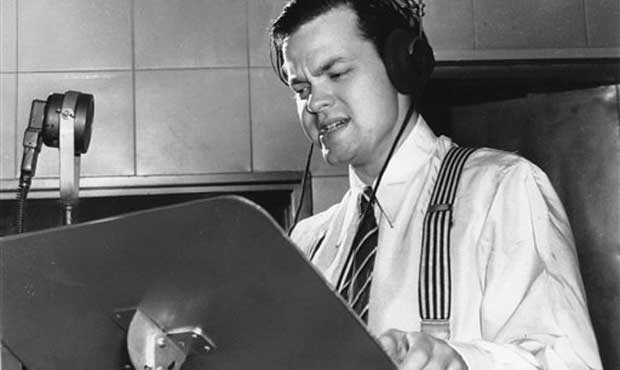
Just about every book ever written about the “War of the Worlds” broadcast mentions what happened in Concrete, so when I was producing a radio documentary for a local public radio station back in 2003 for the 65th anniversary of the panic, I decided to see if I could find anyone in the little town who’d actually witnessed the tumult.
Several calls to the historical society and the senior center, among other places, led to a lot of dead ends — mainly folks too young to remember the show. I can’t remember how, exactly, but I finally was directed to Albert Frank (the “Albert” in Albert’s Serve-U, I was pleased to learn) who was then 89 years old. He was more than happy to talk with me.
“We were coming home from Everett,” Frank told me by phone. “We hit into Concrete about the time of that lightning and thunderstorm, and people were kinda wandering around and yellin’ and screamin’ and we couldn’t figure out what was going on.”
“Here comes this woman out of the house there, yellin’ that the world was comin’ to an end. She was watchin’ Orson Welles’ movie [sic] in the house, it was on radio and it scared her,” he said.
Frank and his friend tried to help the woman.
“So, she come runnin’ out,’” he said. “And it was rainin’ so hard she could hardly see where she was going. And we tried to stop her and grab her, and finally we got her into the Eagles’ [Club] and [there] was quite [a lot of] yellin’ and screamin’ yet.”
Beyond his “War of the Worlds” memories, Frank was nostalgic about what a going concern and sizable community Concrete had been in those days. He spoke proudly of the three-mile elevated tramline that brought stone from the quarry to the concrete plant; the hundreds of workers employed there; and the additional impact of the timber industry that was booming at that time.
“Oh,” Frank said, “it was a big town.”
Fallout
In an editorial following the broadcast (and after several days in the media spotlight), the weekly Concrete Herald said:
Our city is taking a lot of kidding this week because of the radio scare Sunday evening. Nationwide newspaper stories, radio comments, and even a dramatized playlet on the air depicted Concrete’s residents in panic when the combined horror of a realistic radio play and the coincidence of a power failure brought hysteria. If folks in other cities and towns also went wild, the local citizens who had to stand the sudden darkness, too, can’t be blamed for exhibiting alarm.
Meanwhile, the big city Seattle Post-Intelligencer (owned even then by newspaper giant Hearst) pounced on the chance to knock its ethereal rival medium down a few pegs, with an editorial headlined “Irresponsible Radio,” and boldly pressed into newsprint in black and white:
If anything were needed to demonstrate both the irresponsibility that is so widespread in broadcasting, and the radio’s inherent shortcomings, the hysteria that followed Sunday’s dramatization of ‘The War of the Worlds’ provided abundant evidence. Centuries ago the lawmakers of every civilized country recognized the lack of dependence that could be placed upon one man’s oral statement and another man’s understanding or misunderstanding and insisted upon the written or printed word for everything of importance. And the advent of radio is today bringing a deeper recognition of how unreliable and — on occasion — how dangerous, the spoken word can be.”
I was in Concrete a few years ago, escaping again from roughing it in the wilds of Baker Lake, this time with my nephews in tow (they wanted to see the “drive under” high school). We stopped by Albert’s Serve-U, of course. The store was now called Albert’s Red Apple, and a clerk I inquired of told me that Albert Frank had passed away in 2007.
We paid for our comics and candy bars, and then headed down the road to see what remained of downtown Concrete.
“Oh,” I told my nephews as they stared out the car windows at the old concrete plant, “it was a big town.”
Live broadcast Thursday, October 25: “War of the Worlds”
KIRO Radio will present a live 80th anniversary broadcast of “War of the Worlds” from The Egyptian Theatre in Seattle on Thursday, October 25 with Dave Ross, Ursula Reutin, and other KIRO favorites. Click here for ticket information.
Editor’s Note: A version of this story originally appeared in Crosscut in 2009.


